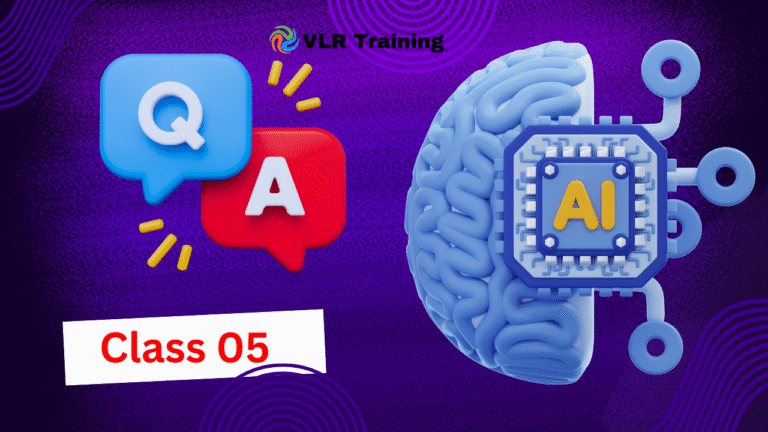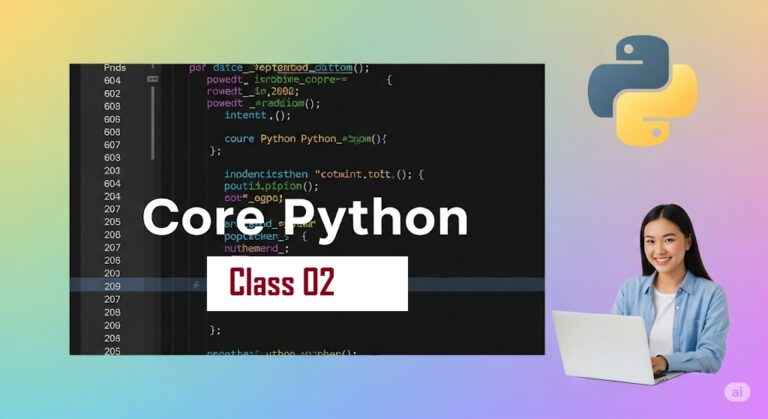-
-
Type Conversion Functions
Type Conversion Functions in Python 🔄 Type conversion (or type casting) transforms data from one type to another. Python provides built-in functions for these conversions. Here’s a comprehensive guide with examples: 1. int(x) 🔢 Converts x to an integer. Python 2. float(x) afloat Converts x to a floating-point number. Python 3. str(x) 💬 Converts x…
-
Dynamically Typed vs. Statically Typed Languages 🔄↔️
Dynamically Typed vs. Statically Typed Languages 🔄↔️ Dynamically Typed Languages 🚀 Python Pros: Cons: Statically Typed Languages 🔒 Java Pros: Cons: Key Differences 🆚 Feature Dynamically Typed Statically Typed Type Checking Runtime Compile-time Variable Types Can change during execution Fixed after declaration Error Detection Runtime exceptions Compile-time failures Speed Slower (runtime checks) Faster (optimized binaries)…
-
Mutable vs. Immutable Objects in Python 🔄🔒
Mutable vs. Immutable Objects in Python 🔄🔒 In Python, mutability determines whether an object’s value can be changed after creation. This is crucial for understanding how variables behave. 🤔 Immutable Objects 🔒 Example 1: Strings (Immutable) 💬 Python Example 2: Tuples (Immutable) 📦 Python Mutable Objects 📝 Example 1: Lists (Mutable) 📋 Python Example 2:…
-
Various types of data types in python
🔢 Numeric Types Used for storing numbers: 🔡 Text Type Used for textual data: 📦 Sequence Types Ordered collections: 🔑 Mapping Type Used for key-value pairs: 🧮 Set Types Collections of unique elements: ✅ Boolean Type 🪙 Binary Types Used to handle binary data: Want to explore examples of each, or dive deeper into when…
-
What are Variables
A program is essentially a set of instructions that tells a computer what to do. Just like a recipe guides a chef, a program guides a computer to perform specific tasks—whether it’s calculating numbers, playing a song, displaying a website, or running a game. Programs are written in programming languages like Python, Java, or C++,…
-
The print() Function
The print() Function Syntax in Python 🖨️ The basic syntax of the print() function in Python is: Python Let’s break down each part: Simple Examples to Illustrate: 💡 Python Basic print() Function in Python with Examples 🖨️ The print() function is used to display output in Python. It can print text, numbers, variables, or any…
-
Anaconda,Jupyter Notebook calss02
PIP stands for “Pip Installs Packages.” It is the standard package manager for Python. Think of it like an app store for Python. Just as you use an app store on your phone to download and install applications, you use pip to download and install Python packages (also known as libraries or modules) from the…
-
Vs code
What is VS Code? 💻 Visual Studio Code (VS Code) is a free, lightweight, and powerful code editor developed by Microsoft. It supports multiple programming languages (Python, JavaScript, Java, etc.) with: VS Code is cross-platform (Windows, macOS, Linux) and widely used for web development, data science, and general programming. 🌐📊✍️ How to Install VS Code…
-
install Python, idle, Install pycharm
Step 1: Download Python Step 2: Install Python Windows macOS Linux (Debian/Ubuntu) Open Terminal and run: bash Copy Download sudo apt update && sudo apt install python3 python3-pip For Fedora/CentOS: bash Copy Download sudo dnf install python3 python3-pip Step 3: Verify Installation Open Command Prompt (Windows) or Terminal (macOS/Linux) and run: bash Copy Download python3 –version # Should show…






